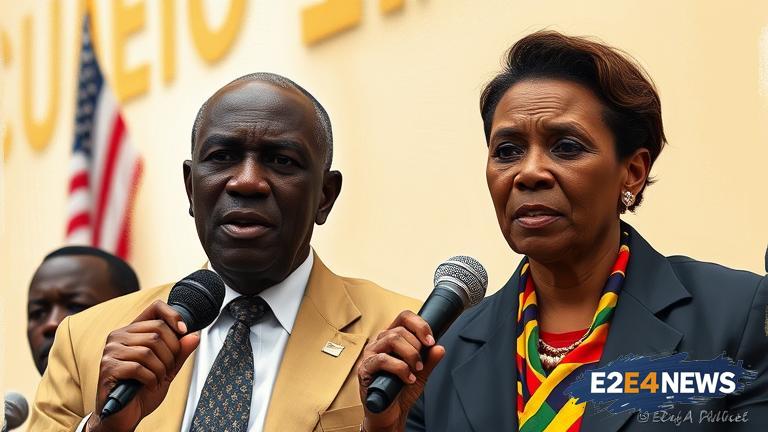Ugandan opposition leaders have expressed strong reservations about a recent deal between the Ugandan government and the United States to receive deportees from the US. The deal, which was announced earlier this month, has sparked widespread controversy and debate in Uganda, with many questioning the potential consequences of accepting large numbers of deportees. According to reports, the US plans to deport hundreds of Ugandans who have been living in the country without proper documentation. The Ugandan government has agreed to accept the deportees, but opposition leaders are warning that the move could have serious implications for the country’s stability and human rights record. They argue that many of the deportees may have been living in the US for years, and may not have the necessary skills or resources to reintegrate into Ugandan society. Furthermore, there are concerns that the deportees may include individuals who have been involved in criminal activity, which could pose a risk to public safety in Uganda. The opposition leaders are also questioning the terms of the deal, which they claim were negotiated in secret without adequate consultation with stakeholders. They are demanding greater transparency and accountability from the government, and are calling for a thorough review of the agreement to ensure that it is in the best interests of the Ugandan people. The controversy surrounding the deportation deal has highlighted the complex and often fraught relationship between Uganda and the US. While the two countries have historically enjoyed strong diplomatic ties, there have been tensions in recent years over issues such as human rights and governance. The Ugandan government has faced criticism from the US and other Western countries over its handling of opposition protests and its treatment of marginalized communities. In response, the government has accused the US and other external actors of interfering in Uganda’s internal affairs. The deportation deal has also sparked debate about the role of international cooperation in addressing migration and border control issues. While some argue that the deal is a necessary step to address the global migration crisis, others see it as a reflection of the failures of international cooperation and the need for more effective and humane solutions. The Ugandan opposition leaders are not alone in their concerns, as human rights groups and other civil society organizations have also expressed reservations about the deal. They argue that the deportations could violate the human rights of the individuals involved, and may not provide adequate protections for their safety and well-being. The controversy surrounding the deportation deal is likely to continue in the coming weeks and months, as opposition leaders and civil society groups push for greater transparency and accountability from the government. In the meantime, the Ugandan people will be watching closely to see how the situation unfolds, and what implications it may have for the country’s stability and human rights record. The deal has also raised questions about the capacity of the Ugandan government to receive and reintegrate large numbers of deportees. The government has announced plans to establish a reception center to process the deportees, but opposition leaders are questioning whether this will be sufficient to meet the needs of the individuals involved. They are also warning that the deportations could place a significant burden on Uganda’s already overstretched social services, including healthcare and education. The controversy surrounding the deportation deal has highlighted the need for more effective and sustainable solutions to address the root causes of migration. This includes addressing poverty, inequality, and lack of opportunities in countries of origin, as well as providing more humane and effective solutions for individuals who are forced to flee their homes. The Ugandan government and the US must work together to find solutions that prioritize the human rights and dignity of all individuals involved. The international community must also play a role in supporting countries of origin to address the root causes of migration, and to provide more effective and sustainable solutions for individuals who are forced to flee their homes. In conclusion, the controversy surrounding the deportation deal between Uganda and the US is a complex and multifaceted issue that requires careful consideration and attention. The Ugandan opposition leaders and civil society groups are right to express concerns about the potential implications of the deal, and to demand greater transparency and accountability from the government. The international community must also play a role in supporting countries of origin to address the root causes of migration, and to provide more effective and sustainable solutions for individuals who are forced to flee their homes.
